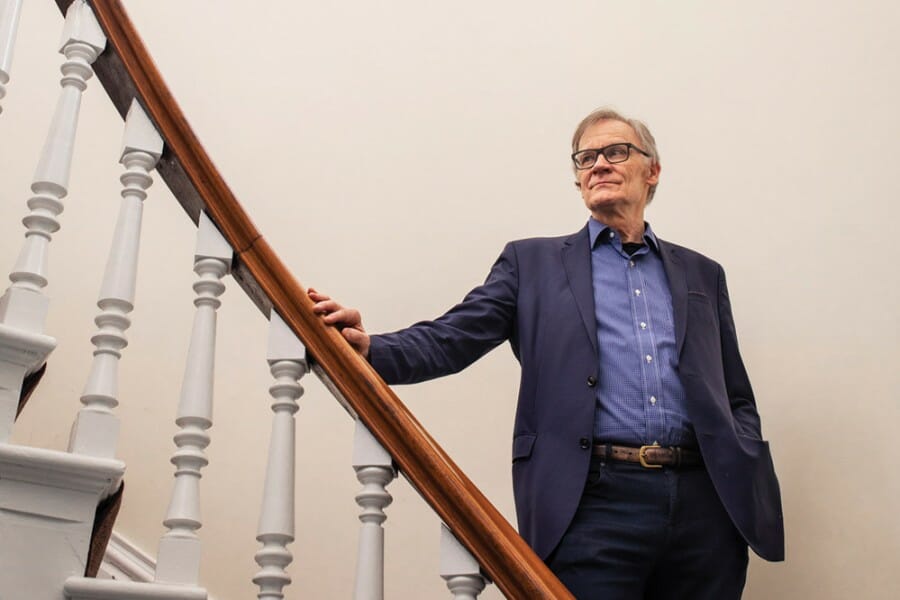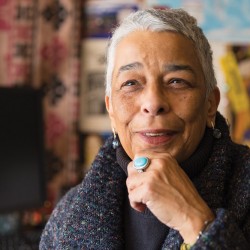David Blight: A New Take on Frederick Douglass
Yale professor David Blight PhD’85 won the 2019 Pulitzer Prize for History for his definitive biography Frederick Douglass: Prophet of Freedom. Douglass was perhaps the most prominent African American of the 19th century — a former slave who was a compelling speaker, newspaper editor, and political activist. He devoted his life to fighting against slavery and, later, against the cruel backlash to Reconstruction that eliminated many of the advances won by former slaves. The origins of the book lie in the doctoral thesis Blight wrote at the UW 40 years ago and reflect a fascination with the Civil War that dates back to his high school years.
When did you decide to become a history professor?
I grew up in a trailer park in Flint [Michigan], and my father worked [in the automotive industry] for AC Spark Plug. Neither of my parents had gone to college, but if I could help it, I never wanted to work in a factory. There were good public schools in Flint that made it possible for the working class to move up to the middle class. Even in high school, I wanted to be a history teacher. I went to Michigan State as an undergraduate, and my mentor at MSU said Wisconsin had a great history department, so I applied.
How did the UW contribute to your development as an academic?
It was a slow process, and I was a late bloomer. At the UW, I had great teachers, including [emeritus professor] Richard Sewell, and it’s there that I learned how to be a scholar. I was a high school teacher, and I was good at it. But could I be a college teacher?
Why has Douglass fascinated you for 50 years?
He was a radical thinker, a man of words, a ferocious critic of the United States, a writer, and an activist. There is no greater voice of America’s terrible transformation from slavery to freedom than Douglass’s.
You are giving a dinner party for Douglass. Who else do you invite?
President Abraham Lincoln, Harriet Beecher Stowe (author of Uncle Tom’s Cabin), Mary Ann Shadd Cary (a former slave who became a fierce abolitionist, lawyer, and newspaper editor), and Charles Sumner (a Massachusetts senator known for his outspoken opposition to slavery).
It’s been a busy year since your book came out in October 2018: receiving the Pulitzer and the Bancroft Prize in American history, going on a book tour, writing articles, and teaching at Yale. What’s next?
I don’t know. I’m intrigued by James Weldon Johnson, an educator, newspaper publisher, the first African American admitted to the bar in Florida, a civil rights advocate, and the author of “Lift Ev’ry Voice and Sing,” known as the African American national anthem.
Published in the Fall 2019 issue




Comments
No comments posted yet.